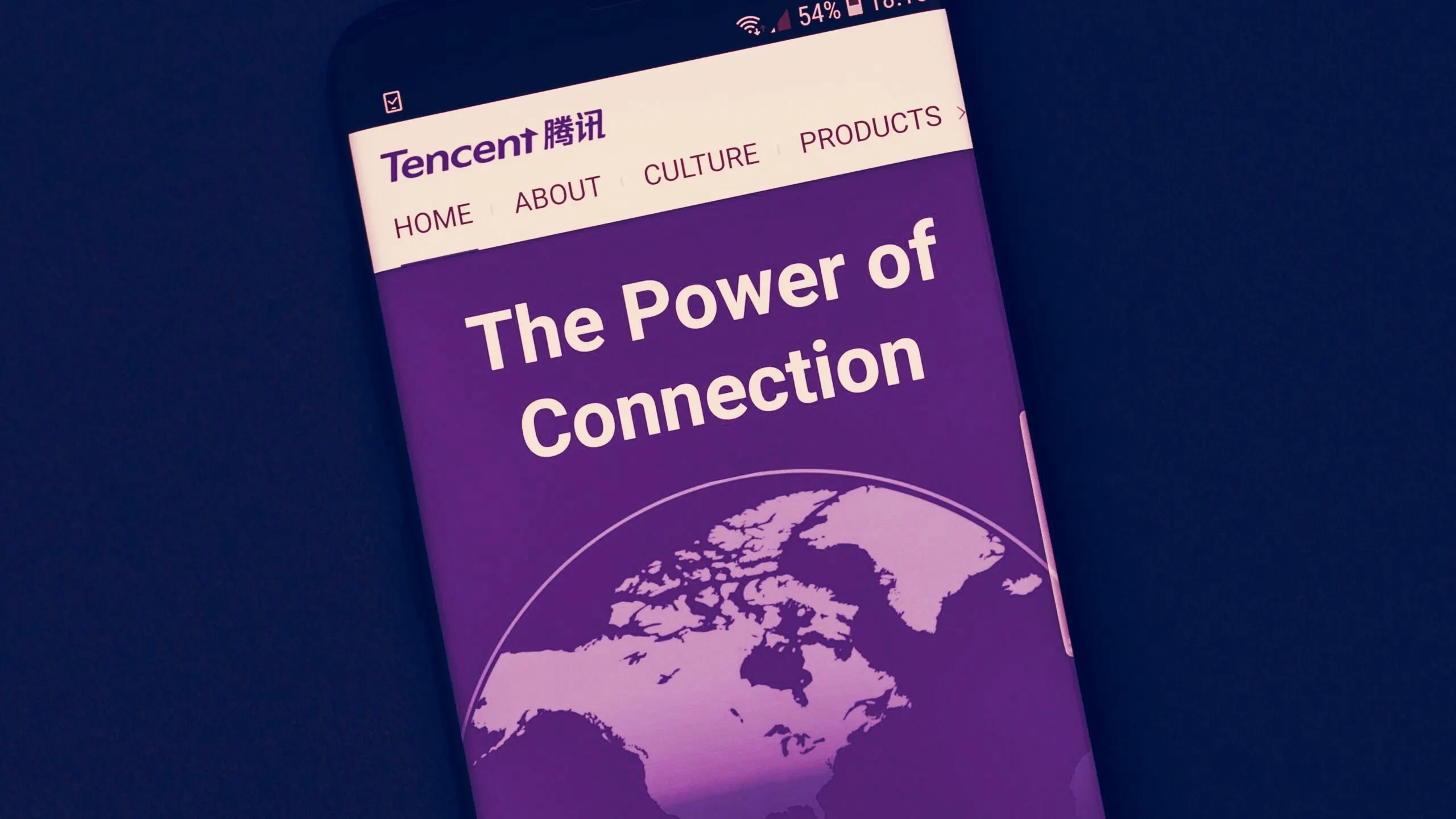Tencent—the $461 billion Chinese Internet giant—is creating a digital currency research team according to Chinese media. It follows the move of major conglomerates in Asia to bolster the use of blockchain technology.
Tencent, which owns the mass-market communications and payment app, WeChat, among other holdings, did not respond to Decrypt's request for comment. The reports noted that the firm issued an internal statement notifying employees that it is in the process of finding the “head of the relevant business group.”
Media reports also noted that the formal establishment of a research team would align Tencent with the Chinese government's blockchain initiative, and help it progress in the digital currency payments area using blockchain technology. Analysts have wondered how WeChat, as well as competitor, Alibaba-owned AliPay, will get along with the Central Bank of China, which is rolling out the country’s official cryptocurrency.
Together, WeChat Pay and AliPay account for nearly half of China’s enormous mobile pay business, which is used by more than 580 million people. As such, China's Central Bank has already said the two companies are among the first to be receiving the digital currency.
Matthew Graham, CEO of Sino Global Capital, a Beijing-based advisory firm specializing in blockchain technology, told Decrypt that this was potentially good news for Tencent in the near term. But longer term, the Chinese government’s proposed digital currency, known as the Digital Currency Electronic Payment, could pose a threat to Tencent’s WeChat Pay and AliPay.
“In our view existing digital payments solutions such as Tencent’s WeChat Pay and AliPay will coexist with DCEP for the foreseeable future. With that said, we’d be somewhat concerned if we were Alibaba or Tencent. Although DCEP undoubtedly will have beneficial aspects for these e-commerce giants, it’d be folly to not view DCEP as a potential competitive threat to their immensely important payments businesses,” he said.
Still, the "beneficial aspects," he pointed out, could be considerable and accrue to companies at the vanguard of China’s mass push into digital currency. Tencent and Alibaba were also expanding into the 150 or so countries that are included in China’s One Belt One Road global trade initiative. Hypothetically, they could thrive forever as the wallets for global trade using China's digital currency.
One blockchain, one road?
“Part of the DCEP vision is OBOR, chipping away at the dollar’s status as the de facto global reserve currency,” he explained. “Meanwhile many of the same nations are strategic imperatives for Alibaba and Tencent.”
However, based on the circulating internal document, near-term objective of Tencent appears to be to supplement the national blockchain initiative of the Chinese government with relevant technologies and solutions.
For instance, China’s Belt and Road Initiative is expected to use blockchain as one of its key technologies for data processing and storage. Firms like Tencent would aim to assist the government of China to efficiently implement blockchain technology.
At the recent Hainan Free Trade Port International Cooperation Forum on Digital Economy and Blockchain, many countries and Huobi announced that they will collaborate to create a blockchain-based financial infrastructure for the Belt and Road Initiative.
The strategy used by Tencent to hire a blockchain specialist to form a digital currency research team closely resembles that of the Bank of Korea. Decrypt reported last week that the Bank of Korea is looking to hire a cryptocurrency specialist to form a group of researchers for blockchain development.

